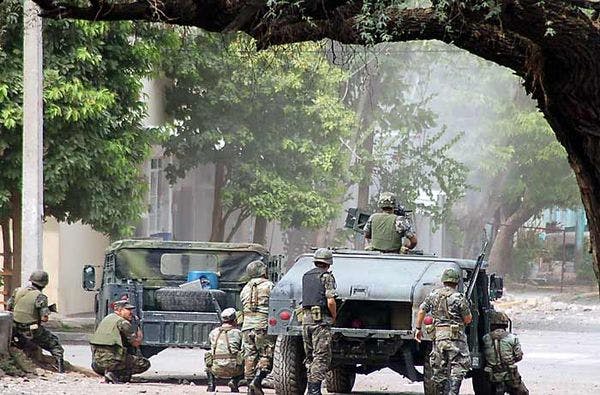Wikipedia - By Diego Fernández - Public Domain
La guerra contra las drogas de Nixon ha fracasado durante medio siglo. Es hora de acabar con ella: Alexander Soros
La “guerra contra las drogas” se desarrolló como una solución a inquietudes relacionadas a la salud pública, violencia y crimen organizado, que en su conjunto han empeorado a causa de este enfoque. Más información, en inglés, está disponible abajo.
By Alexander Soros / USA Today
Fifty years ago this month, the United States launched a war on its own people. President Richard Nixon declared drug abuse “public enemy number one.” Since then, our criminal approach to drugs has devastated lives, destroyed communities, and led to the largest prison population in the world.
Over the past half-century, the drug war has driven a well-documented surge in police budgets and incarceration. Law enforcement agencies now make more than 1.6 million arrests each year for drug possession alone. Human Rights Watch documents that every 25 seconds in the United States, someone is arrested for the simple act of possessing drugs for their personal use. From its inception, the war on drugs, has fueled institutional and structural racism and fuels the prison industrial complex, mass incarceration, and police brutality.
According to the American Civil Liberties Union, Black people are almost four times as likely as white people to be arrested on marijuana charges, despite similar rates of consumption. The war on drugs has turned even the suspicion of substance use into an excuse for deadly force. A no-knock search warrant — a tactic frequently justified by the assertion that drug suspects pose an inherent danger — led to the killing of Breonna Taylor. As George Floyd was being murdered, an officer nonchalantly told onlookers, “This is why you don’t do drugs, kids.”
The U.S. has exported these violent and regressive policies across the globe, promoting an international framework of drug prohibition and tying military aid and intervention to the war on drugs. In these countries, as in the U.S., criminalization has done nothing to curb supply or demand. Instead, it’s just fueled black market-related violence. Since 2006, Mexico’s war on drug cartels has led to more than 150,000 deaths associated with the drug trade and more than 32,000 disappearances.
